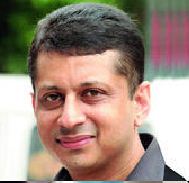Dhaka’s tortuous pursuit of constitutional reforms
There are fresh rumbles in Bangladesh’s political sphere — a student-led party that emerged from the revolution that ousted the Sheikh Hasina government has become a bold voice for democratic reform, although it is quite unruly yet. As calls for elections grow louder, the tension between this urgency and the reforms needed continues to define this critical moment. Not long ago, Muhammad Yunus, the head of the interim government, met with political parties to build consensus regarding reforms. So far, there is no concrete agreement among the political parties on the charter of reforms.
The proposed changes to the Constitution aim to replace the core principles of nationalism, socialism, democracy, and secularism with new ideals — equality, human dignity, social justice, pluralism, and democracy. While these changes aim to address the long-standing grievances of the public, they are not without challenges. As Bangladesh transitions from decades of centralised authoritarian rule, it now enters uncharted territory, where outcomes remain unpredictable yet highly consequential.
Many have argued that the existing Constitution has outlived its utility, becoming a tool for authoritarianism rather than a charter for democracy. The nine-member constitutional reform commission, chaired by Bangladeshi American political scientist and writer Ali Riaz, has proposed significant changes, including restructuring the foundational principles. These principles, particularly secularism, are misaligned with the country’s identity given 90% of the population is Muslim, maintains Bangladesh’s attorney........






















 Toi Staff
Toi Staff Gideon Levy
Gideon Levy Jeffrey Bernstein Ph.d
Jeffrey Bernstein Ph.d Rachel Marsden
Rachel Marsden Tarik Cyril Amar
Tarik Cyril Amar Omar Mohammed
Omar Mohammed Muhannad Ayyash
Muhannad Ayyash
